Strong leadership marked the period of 1981 to 1990. Roderick A. Macdonald led the Faculty as dean from 1984-1989 and is remembered as one of the boldest, most creative, and kindest leaders the Faculty has had, especially in his role as mentor to professors and students alike. Students were also taking the lead at the Faculty during this time: Coffeehouse, a weekly student social event, and the Quid Novi, a weekly student newspaper, both began. To this day, the Quid Novi and Coffeehouse remain two vital pillars of the McGill Law student community. Students also fought for significant representation on Faculty Council during this period, as they desired to contribute more to the academic side of McGill Law. Many years of negotiation, tension and an eventual “Day of Silence” protest led the students to the success that they still benefit from today, increasing their representation on Faculty Council to approximately one-fifth of the total seats. Meanwhile, Prime Minister Pierre Elliott Trudeau was leading Canada into a new age by patriating the Constitution and enacting a Charter of Rights, something on which McGill Law would leave a lasting mark.
In this period:
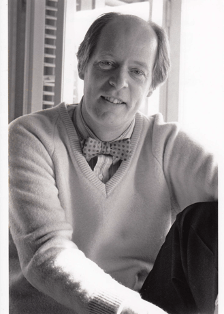
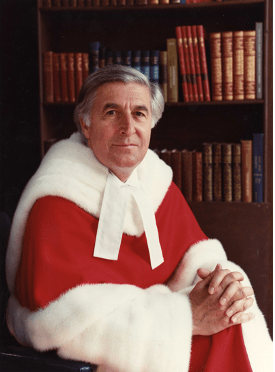
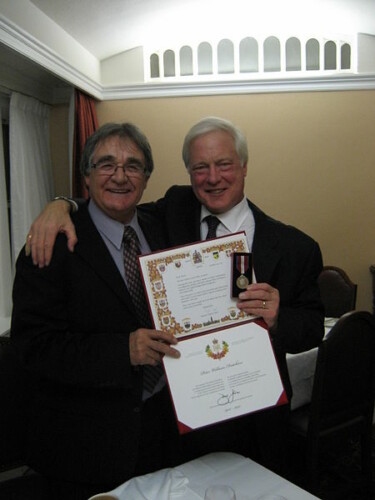
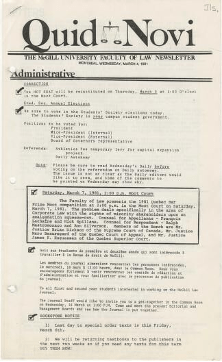
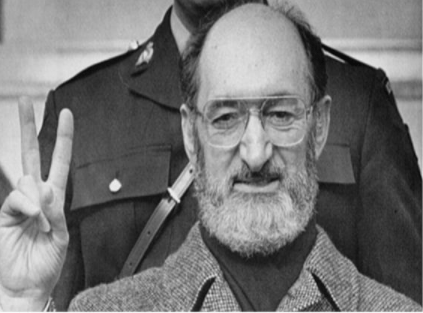
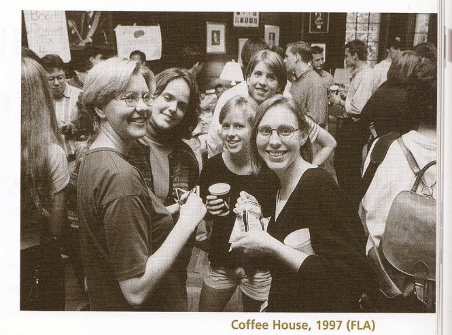
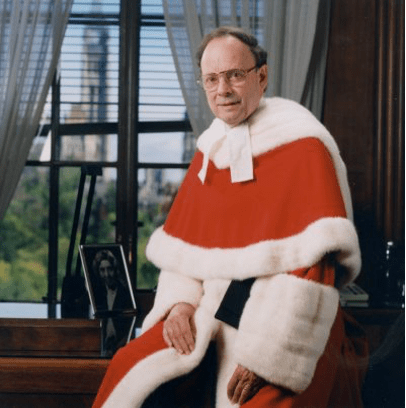
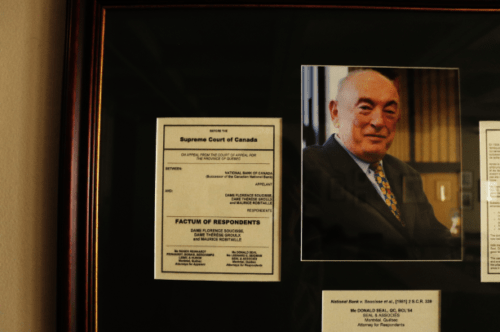
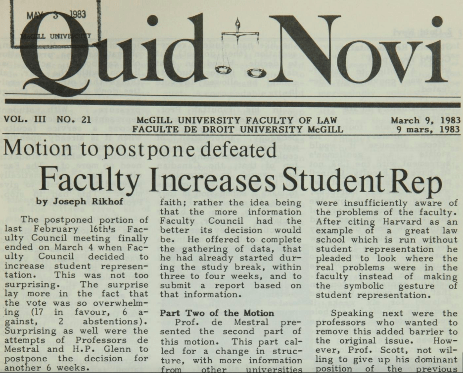
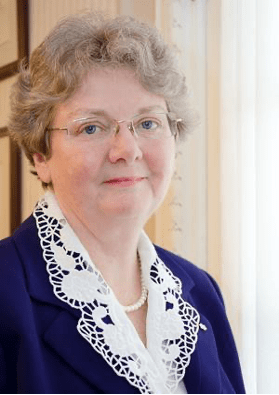
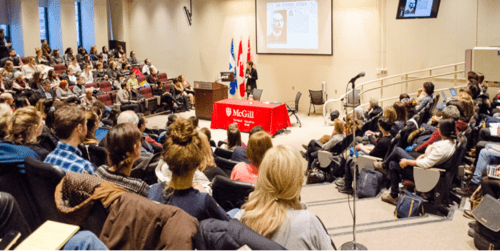
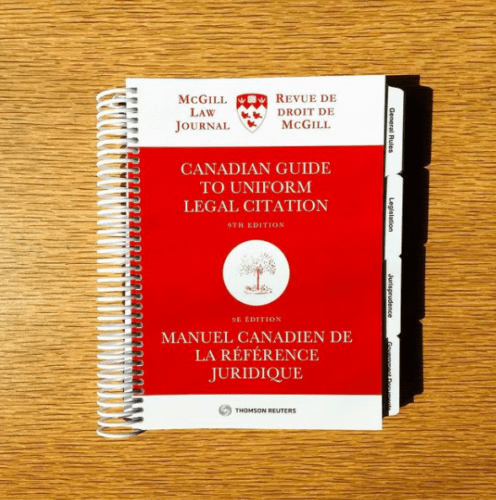
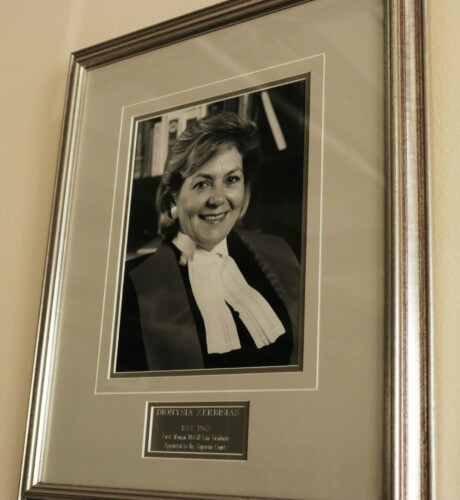

Rod Macdonald: A Visionary Dean

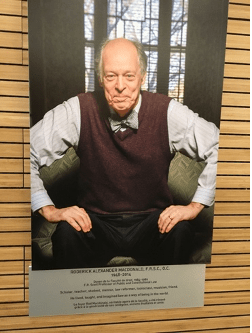
Rod Macdonald is one of the most important figures in the history of McGill’s Faculty of Law. He was a beloved professor and served as dean of the faculty between 1984 and 1989. During this time, he introduced curricular reforms and implemented cultural changes in the faculty. His scholarship had important reverberations across Canada and abroad. As noted by former dean and professor Daniel Jutras, “Everyone who reads him, in whatever field they may be working, is left with a new way of looking at the law and a new way of looking at the world.” Macdonald’s commitment to breaking down linguistic, societal, and jurisdictional boundaries in law strengthened the Faculty’s National Programme and was a major force in leading the Programme into what it has become today.
Macdonald was also a consultant for the Bouchard-Taylor Commission, the Royal Commission on Aboriginal Peoples, and the Charbonneau Commission. In addition to his research, Macdonald served a five-year term as the director of the Law in Society Programme at the Canadian Institute for Advanced Research, and a three-year term as the founding president of the Law Commission of Canada. Dean, professor, and mentor to everyone from students to future Supreme Court justices, both the lobby in New Chancellor Day Hall and the reading room in the Royal Society of Canada are named in his honour.
McGill Law at the SCC: Gerald Le Dain

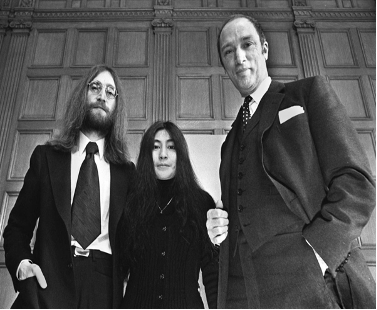
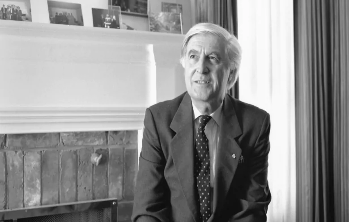
In 1984, Gerald Le Dain, BCL’49, was named to the Supreme Court of Canada. Prior to his appointment, he practiced as a lawyer, taught at McGill Law for six years, acted as the Dean of Osgoode Hall, was a judge at the Federal Court of Appeal, and oversaw a commission inquiring into the non-medical use of drugs. Before his legal career, Le Dain served in World War II with the Royal Canadian Artillery. As Dean of Osgoode Hall, Le Dain advocated for law schools to have more control over their education, rather than being bound by what the Law Society of Upper Canada dictated. Le Dain’s work allowed for law schools and faculties to experiment with their curriculum, pedagogy, and research.
The Le Dain Commission on the recreational use of drugs released an interim report in 1970 that recommended the decriminalization of all drugs. These recommendations were ignored by the government, and it would not be until after Le Dain’s death that cannabis became legal in Canada. Le Dain was seen by many as being ahead of his time. Pictured (centre) is Prime Minister Pierre Elliott Trudeau with Yoko Ono and John Lennon, who came to testify to the Commission.
Gerald Le Dain resigned from the Supreme Court, after serving for only four years. When he requested time off to deal with his depression, Le Dain was asked to resign. More recently, former Supreme Court Justice Clément Gascon publicly revealed his struggles with depression. McGill Law Professor Richard Janda spoke to the fact that this demonstrates the progress that has been made in ending the stigma around mental health; Justice Gascon’s public admission to his struggle with depression stands in contrast to the hushed and forced resignation of Justice Le Dain.
Aboriginal Peoples and the Law: A New Course

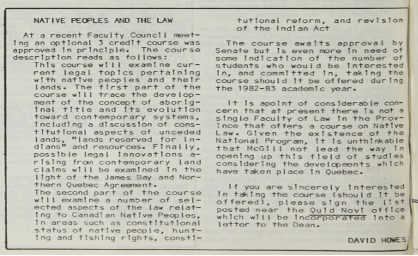
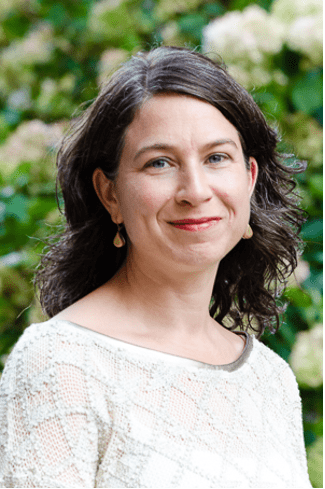
In the fall of 1982, Native Peoples and the Law was introduced as a three-credit course, the beginning of what is now Aboriginal Peoples and the Law. The course was a result of three years of discussions and effort on the part of students and faculty members. Native Peoples and the Law was initially taught by Peter W. Hutchins, a prominent Aboriginal Law lawyer. Before teaching at McGill Law, Hutchins advocated for Cree people in Northern Quebec during the James Bay negotiations. He taught at McGill until 1996, remaining the professor of Native Peoples and the Law the entire time. He has pleaded in front of the Supreme Court and has advised both territorial and federal governments on treaty implementation. Hutchins can be seen above receiving the Queen Elizabeth II Diamond Jubilee Medal from Senator Charlie Watt for his work in advancing the rights of Aboriginal peoples.
The course is now offered every year. For many years, it has been taught by Professor Kirsten Anker (pictured above, right), who has extensively researched Indigenous legal traditions and Aboriginal title, and how they relate to Canadian law. Her most recent book, Declarations of Interdependence: A Legal Pluralist Approach to Indigenous Rights, was published in 2014, and in 2015 was awarded the Richard M. Buxbaum Prize for Teaching in Comparative Law for her efforts in teaching students about Indigenous Law in all of her courses. In 2019, Professor Kerry Sloan, a member of the Metis communities of Vancouver Island, began teaching Aboriginal Peoples and the Law. In 2021, Faculty Council voted to change the name of the course to Indigenous Peoples and the State.
Launch of Quid Novi: The McGill Law Student Newspaper

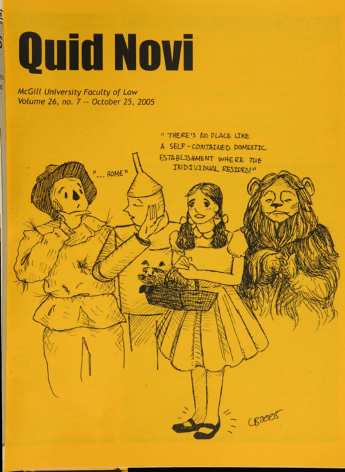
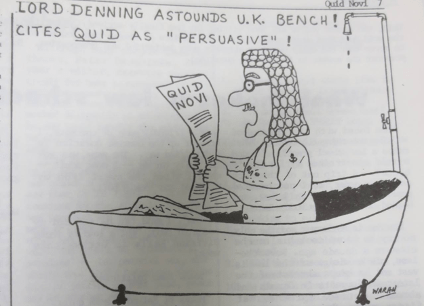
The Quid Novi is a student-run newspaper at McGill Law. It was first published in 1981 as a newsletter (the first edition is pictured above). The Quid was created as a forum for updating students on student elections, job opportunities, and other goings-on at the faculty. It quickly became much more, acting as a venue for students and faculty members to voice their opinions about both law and non-law related issues. Richard Janda, BCL’85, LLB’85, now a professor at the faculty, was one of the founding members of the Quid during his time as a student. Today, the Quid continues to be published weekly during the school year.
The Quid Novi has often been a site of heated debate. Students and professors alike have had back-and-forths in the Quid, covering political topics such as abortion, and more local concerns, like the use – or lack of use – of French at the Faculty. Before the advent of the Internet, the Quid was the source of everything: job postings, summer housing sublet advertisements, textbooks for sale, and club recruitment could all be found in the Quid’s pages. Now, almost all of these activities happen in various McGill Law Facebook groups. Still, the Quid continues to be an active and important part of the McGill Law experience. Importantly, it offers something which Facebook groups do not: communications to and from Faculty members. The Quid continues to be published weekly.
Famous Visitors to McGill’s Faculty of Law
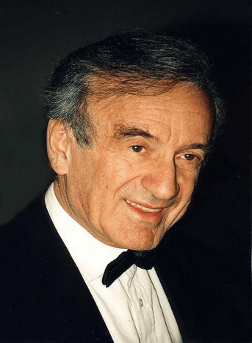
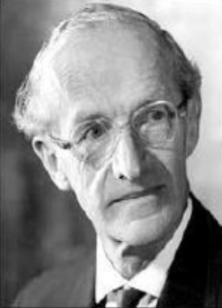

Over the years, McGill Law has invited many notable individuals to the faculty to share their stories. One particularly notable visitor was Henry Morgentaler, who came to speak at the Faculty of Law in May 1985. He was warmly received by the law students, who were eager to hear about his experiences and perspective on the abortion debate. Morgentaler is famous for his decades-long fight for reproductive rights in Canada. His activism led to the decriminalization of abortion in Canada in 1988.
Lord Wilberforce was a guest speaker at McGill’s Faculty of Law after being invited by the McGill International Law Society on September 30, 1981. This was a very exciting visit for the Faculty, as Lord Wilberforce was a very well-respected Law Lord, described as “one of the most civilized and balanced judges of the twentieth century.” He served as a Lord of Appeal in Ordinary for the British House of Lords for eighteen years.
Elie Wiesel, a Holocaust survivor, Nobel Laureate, and the author of Night, was another important visitor to the Faculty of Law. In November 1987, McGill Law held a conference entitled “Nuremberg Forty Years Later: The Struggle Against Injustice in Our Time”. Elie Wiesel spoke at this conference as the inaugural lecturer for the Raoul Wallenberg Lectureship in Human Rights. Students, faculty members, and conference attendees were eager listeners of Wiesel, and spoke very highly of his visit and the conference.
Coffeehouse Tradition Begins


McGill Law students do more than just study and participate in extra-curricular activities: they also participate in social events purely for fun. In 1989, David Lametti, BCL’89, LLB’89, who was then the president of the Law Students’ Association, thought of an event that could provide just that: Coffeehouse. Every Thursday at 4:00 pm, students would gather at the Faculty, have drinks and listen to music. From the time this tradition began, Coffeehouse has been a popular event with a high attendance rate. Funnily enough, despite its name, Coffeehouse does not serve any coffee! In its early days, Coffeehouse was held in the Common Room of Old Chancellor Day Hall (pictured above).
Throughout the 1990s, a shift happened with regard to Coffeehouse: law firms began to sponsor the event by providing free food and alcohol. Sarah Turner and Desmond Anderson, in their article “Socialisation in a space of law: student performativity at ‘Coffee House’ in a university law faculty,” argued that this was a way for firms to brand themselves. This was a controversial aspect of Coffeehouse, and there has been a slow shift away from corporate sponsorship towards partnerships with student clubs.
McGill Law at the SCC: Charles Gonthier

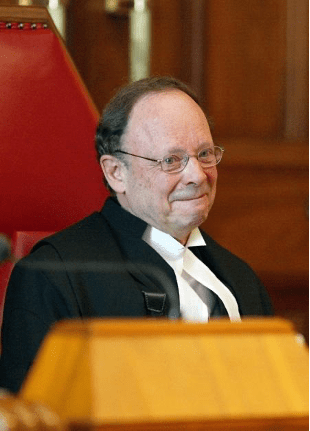
Charles Doherty Gonthier, BCL’51, practiced law for 22 years in Montreal before being appointed to Quebec’s Superior Court in 1974. Gonthier went on to have a long career on the bench. He was appointed to the Québec Court of Appeal in 1989 followed by the Supreme Court of Canada in 1990, where he stayed on the bench until his retirement in 2002. Upon retiring, Justice Gonthier returned to Montreal to practice law at McCarthy Tétrault. He also returned to his alma mater as a Wainwright Senior Fellow and chaired the board of the Centre for International Sustainable Development Law.
Numerous awards have honoured Gonthier’s lengthy and impressive career. These awards include a Médaille du Barreau de Montréal, a Médaille du Barreau du Québec and an Ordre des Palmes académiques de France. The Canadian Institute for the Administration of Justice named the Charles D. Gonthier Research Fellowship in his honour in 2009. He has received honorary doctorates from McGill Law in 1990 and from the Université de Montréal in 2002. In 2007, Justice Gonthier received Canada’s highest civilian honor as he was named a Companion of the Order of Canada. The Charles D. Gonthier Outstanding Young Alumni Award was created by the Young Alumni Advisory Board, named after Gonthier to “celebrate his career-long commitment to youth.”
Doctrine of Good Faith, Championed by Donald Seal

In 1981, Donald Seal, BCL’54, was involved in the landmark case of the National Bank of Canada v. Soucisse et al. Advocating for Florence Soucisse, a widow being sued by the bank for a guarantee of which she was completely unaware, Seal played a pivotal role in establishing the doctrine of good faith in Quebec civil law. Having done extensive research to find relevant precedent in multiple civil law jurisdictions, Seal was able to successfully argue to the Supreme Court that while the bank did not act incorrectly, it had acted in bad faith. Subsequent to this case, the Civil Code of Quebec added provisions that oblige individuals to exercise their rights in good faith (Articles 6, 7 and 1375, for example).
Day of Silence Protest

In 1981, roughly 200 McGill Law students participated in the Day of Silence protest. During this day, students did not participate in class or engage with professors at all. This was done to express their frustration with insufficient student representation on the Faculty Council and to emphasize “how fundamental on all levels [their] input really [was].” Faculty memos found in the McGill University Archives, alongside the Quid Novi, document the deep tensions and frustration that existed between faculty members and students at the time. Many faculty members were resistant to the idea of increasing student representation on the Faculty Council for fear of students pushing for changes they disagreed with.
The Day of Silence protest was generally well-received by law students and even some staff members, whom the Quid reported were “cooperative” and “often good humored”. However, the Quid also reported that there were a few professors and students who were unsupportive, and even “went out of their way to retaliate against” those participating in the protest. In 1983, two years after the Day of Silence protest, professors on the Faculty Council voted to increase student representation within the faculty in a tense 17-6 vote.
McGill Law’s Influence on Canada’s New Constitution and Charter


Mary Dawson, BCL’66, had a long career with the Government of Canada, where she played a large role in many constitutional matters. Notably, she was the final drafter of the Constitution Act, 1982. She was in a back room throughout the First Ministers’ Conference in 1981, drafting and re-drafting the future Constitution as deals were made and exchanged between the politicians involved. She drafted all constitutional amendments until her retirement in 2005 from the Department of Justice Legislative Section. She noted that the public would complain about the “men in suits” responsible for constitutional matters, but that “they didn’t know I was a female there drafting it all.” In 2007, she became the Ethics Commissioner of Canada as well as a member of the Order of Canada.
R v. Oakes was the landmark case in which the Supreme Court of Canada outlined the test to determine whether an infringement of the Charter of Rights and Freedoms could be justifiable under Section 1 of the Charter. This test is still used today in Charter cases. Professor Colleen Sheppard, who teaches Constitutional Law at McGill, was clerking for Chief Justice Dickson at the time, and assisted with the Oakes case.
Langstaff’s Legacy: The Langstaff Workshop Series
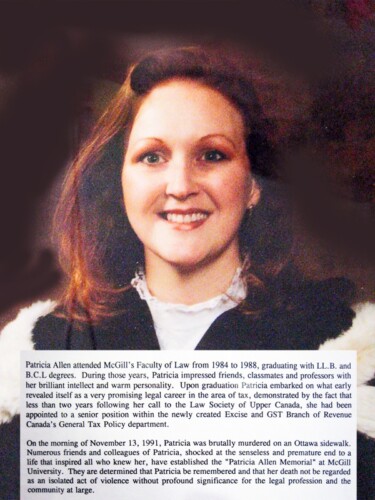
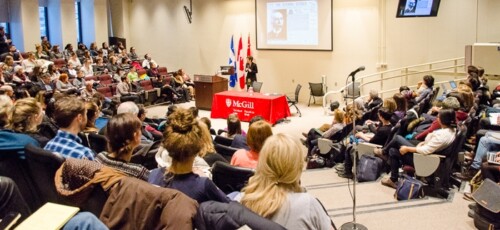
In 1988, the first of many Annie MacDonald Langstaff Workshops was held. Langstaff, BCL’14, was the first woman to earn a law degree in Quebec. The workshops were created in her namesake as a forum for professors, students, and community members to learn about and discuss issues relating to women and the law. These workshops included two named workshops, one of which is the Patricia Allen Memorial Lecture. Patricia Allen, BCL’88, LLB’88, known for being a bright and warm person, was murdered in 1991 on an Ottawa sidewalk only three years into her promising legal career. Her shocked and devastated colleagues, classmates, and family established the lecture series in her honour, ensuring she would be remembered for more than just her senseless death.
The other named workshop is the Margot E. Halpenny Memorial Lecture. Margot E. Halpenny, LLB’76, passed away in 1991 and the lectures were created through an outpouring of donations from friends and family. Pictured above is the 2016 Margot E. Halpenny Memorial Lecture, delivered by Dr. Cindy Blackstock and titled “Reconciliation means not having to say sorry twice.”
Creation of the Canadian Guide to Uniform Legal Citation by MLJ

In 1986, the McGill Law Journal released the first edition of the Canadian Guide to Uniform Legal Citation. Known informally as the McGill Cite Guide, it was founded with the purpose of standardizing legal citations across Canada. It has become the authority for legal citations in Canada, setting the standard across Canadian universities and courts. It has also started to be used internationally, as it was adopted by the Singapore Journal of Legal Studies. New editions are released regularly to address the changing nature of legal citations. The release of their latest and ninth edition in 2018 includes instructions on citing Indigenous constitutions, videos and arbitration cases.
Pioneering Women: McGill Law in Quebec Superior Court

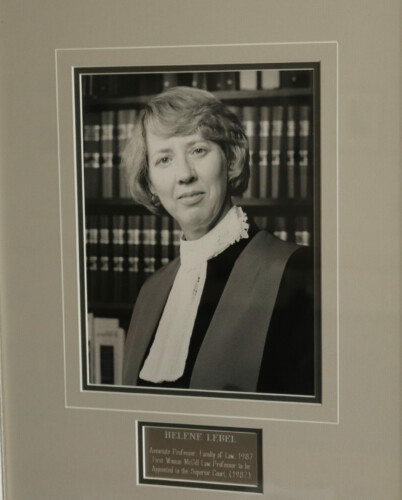
Dionysia Zerbisias BCL’62, became the first female McGill Law graduate to be appointed to the Superior Court in 1983. In 2002, Zerbisias was awarded the Queen Elizabeth II Golden Jubilee Medal, an award given to Canadians to recognize significant contributions to public life. Her appointment to the Superior Court was only ten years after Claire L’Heureux-Dubé became the first woman to be appointed to the Superior Court in 1973. Today, 79 of the 191 judges at the Quebec Superior Court are women.
In 1987, Hélène Le Bel became the first female professor at McGill Law to be appointed to the Superior Court. She remained a judge at the Quebec Superior Court for thirty years, recently retiring from the court in 2017. Before becoming a judge, Le Bel argued cases before Quebec courts, the Federal Court, and the Supreme Court of Canada.
From Classroom to Courtroom: Dean Yves-Marie Morissette

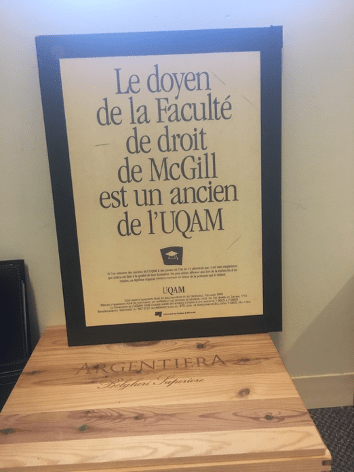
While Morissette may not have attended McGill for his legal studies, he nonetheless had a long career with the Faculty. He held the Arnold Wainwright Professorship in Civil Law and was also the Director of the Institute of Comparative Law. He was also the Faculty’s dean from 1989 to 1994. In November 2002, he was named to the Quebec Court of Appeal, where he continues to serve as a judge.
Pictured above is a hilarious advertisement from 1993 for the Université de Québec à Montréal (UQAM). It refers to Dean Yves-Marie Morissette, who had earned his Bachelor of Arts at UQAM. For UQAM, having their alumnus be Dean of McGill Law meant that the degree they offered was well-respected and valuable.
